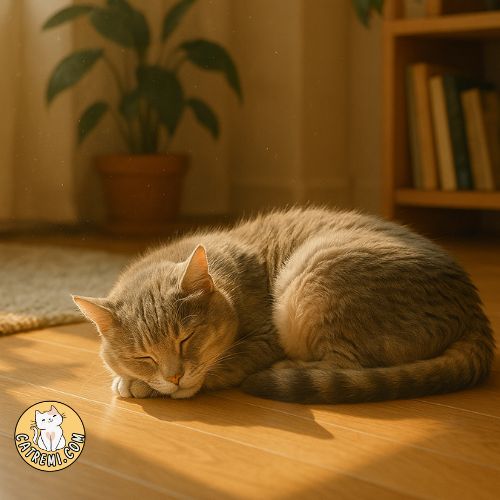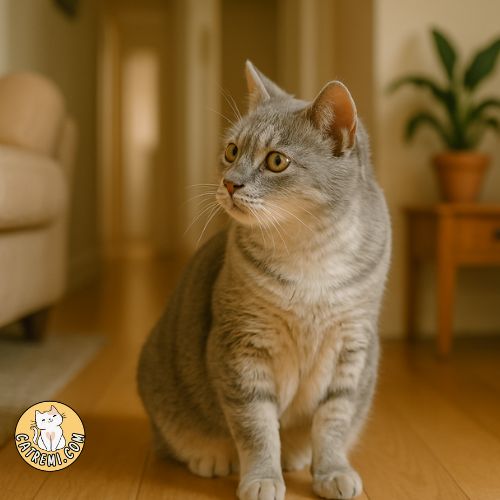When your cat reaches their golden years, you might expect them to slow down and sleep more—but there’s actually a lot more going on beneath the surface. From changes in behavior to unexpected physical shifts, the world of senior cat health facts is full of fascinating insights that many pet owners have never heard about. Knowing these little things can make a big difference in how you care for your aging feline friend.
Let’s explore some fun and surprising senior cat health facts that might just make you go, “Wait, really?”

😴 1. Senior Cats Sleep Even More Than You Think
While cats already sleep around 13–16 hours a day, senior cats can clock in up to 20 hours—and it’s not just laziness!
As they age, their metabolism slows, and they require more rest to conserve energy and repair their bodies. Don’t be surprised if your older kitty spends most of their day napping in a cozy corner—it’s totally normal!
🌙 2. Yes, Older Cats Really Do Dream
Believe it or not, cats—just like humans—experience REM sleep, the stage where dreaming happens.
Senior cats dream more lightly, and their paws or whiskers might twitch while they sleep. It’s completely adorable… and totally real. They might be reliving memories of chasing birds (or just that one time you forgot to feed them on time 😉).
.
🦷 3. Losing Teeth Isn’t a “Normal” Part of Aging
It’s a common myth that old cats “just lose teeth.” In reality, tooth loss is usually a sign of dental disease, not natural aging.
If your senior cat has missing teeth, bad breath, or struggles to eat, it may be time for a vet checkup. Good dental care = a happier, healthier senior kitty!
📌 Tip: Schedule annual dental exams—even if your cat “seems fine.”
According to the American Association of Feline Practitioners, senior cats often need extra dental care and routine checkups.
🐾 4. Weight Loss Might Be a Warning Sign
While some weight loss is expected with age, sudden or unintentional weight loss could point to issues like hyperthyroidism, diabetes, or kidney disease.
Keep an eye on your cat’s body condition and visit your vet if you notice changes. Monitoring weight is a simple but powerful way to track health.
💧 5. Older Cats Get Dehydrated Easily
Senior cats tend to drink less and have lower thirst sensitivity, making them more prone to dehydration.
Encourage hydration by placing multiple water bowls, using cat fountains, or offering wet food as part of their diet.
📝 Fun fact: If your senior cat’s fur tents (doesn’t bounce back quickly) when gently pinched, it might be a sign of dehydration.
👂 6. They May Hear… Less Than You Think
Some cats lose their hearing as they age—but unlike humans, they often hide it well.
If your cat doesn’t come when called, or startles easily, they may be hard of hearing. Try using soft floor taps or gentle vibrations to get their attention instead of calling their name.

🧠 7. They Can Experience Cognitive Changes
Just like people, cats can experience cognitive decline.
Signs may include wandering aimlessly, staring at walls, vocalizing at night, or forgetting familiar routines. These symptoms can be mild or progress over time—but the good news is, they can often be managed with lifestyle adjustments and vet support.
🧠 Tip: Keep a routine and use soft lighting at night to reduce confusion.
💬 Final Thought
Your senior cat may be older, but they’re still full of personality, surprises, and love.
By understanding these unique health facts, you’re not just a great cat parent—you’re a hero in their eyes (and maybe even in their dreams).
✨ Which fact surprised you the most? Share with us or tag a fellow cat lover who needs to know!
✅ Keep Learning & Loving
Want to support your senior cat even more?
